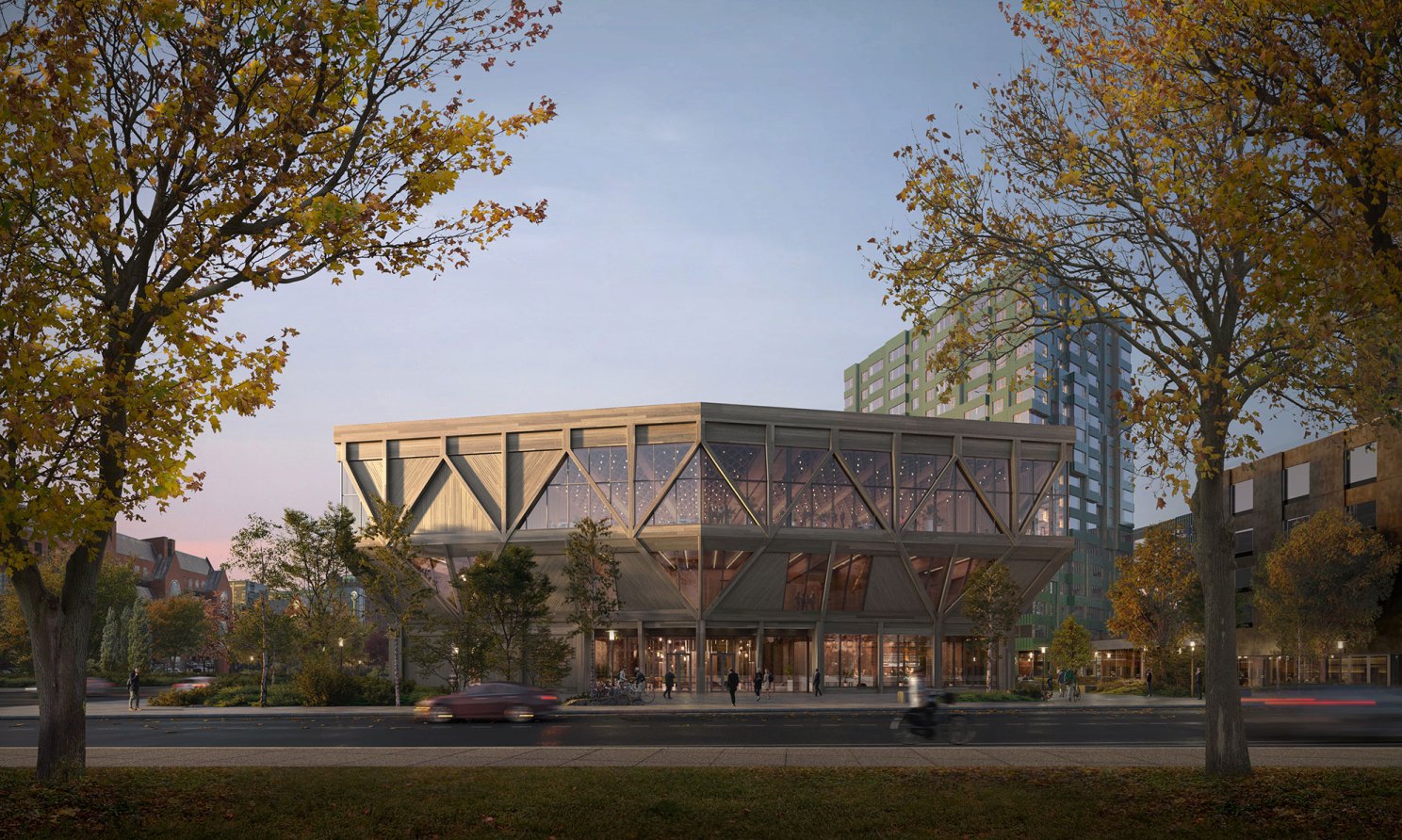Updated Harvard Sustainable Building Standards advance climate, health and equity

Construction of the David Rubenstein Treehouse Conference Center will be using the latest Sustainable Building Standards.
Artist renderings courtesy of Studio Gang
Harvard University released its 2024 Sustainable Building Standards, which mark the most significant update since the standards were first developed in 2009. The latest standards now target Living Building Challenge (LBC) Core certification plus the Harvard Healthier Building Academy’s (HHBA) requirements for healthier materials, enhanced indoor air quality, future-proofing for a fossil fuel-free future, and climate resilience. Through a multi-year process, the 2024 standards were developed in collaboration with a subcommittee of multidisciplinary Harvard faculty on the Presidential Committee on Sustainability, as well as operational leaders and staff across the University. The standards were also developed using external benchmarking to align with leading sustainable building practices.
HHBA is a best-in-class program for healthier materials purchased especially for our interior spaces. HHBA defines healthier criteria across 14 interior product categories – such as carpet, paint, flooring, furniture, etc. – to ensure that the products are free of per- and polyfluoroalkyl substances (PFAS)/forever chemicals, chemical flame retardants and antimicrobials, and additional chemical classes of concern. Developed in 2016, HHBA is a partnership between the Harvard Office for Sustainability and faculty from the Harvard T.H Chan School of Public Health, John A. Paulson School of Engineering and Applied Sciences, and Harvard Medical School.
The substantial changes aim to maintain leading sustainable building practices and support the University’s Sustainability Action Plan to accelerate action to protect the climate and environment, advance a more equitable society, and promote the well-being of people. A group of multidisciplinary Harvard faculty worked collaboratively with the OFS on benchmarking analysis that showed the LBC Core system to be most aligned with Harvard’s holistic approach to sustainability.
Multiple projects have successfully piloted the new standards over the past several years to prove they are achievable. LBC Core is a performance-based certification from the International Living Future Institute whose mission is “creating regenerative buildings and materials that foster human well-being, environmental health, and thriving communities.”
New construction pilot projects underway using the latest standards include the David Rubenstein Treehouse Conference Center, David E. and Stacey L. Goel Center for Creativity & Performance and affiliated housing projects in Allston, as well as major renovation with the Goel Quantum Science and Engineering Building in Cambridge.





